Building the confidence to take on a PhD
First year student Becky Shaw says there is no such thing as a standard route to a PhD, and you are more than capable of doing one!
As part of our regular series exploring life as a PhD student, first year student Becky Shaw says there is no such thing as a standard route to a PhD, and you are more than capable of doing one!
Hello! I’m Becky, a first year PhD student in the Haerty Group at the Earlham Institute. My research uses conservation genomics to study two species: the European polecat and the Black-footed ferret - one of the most endangered mammals in North America. Through my work I hope to better inform conservationists on the population structures and genetic integrity of these species, helping to prevent their extinction.
I started my PhD in October 2020 and, like many other students, I’ve spent the majority of the past year studying from my bedroom. Suffice to say I’ve not been able to kick start my PhD journey in the usual way, but there have been some unique obstacles and opportunities.
While difficult at times, it was quite fitting, as my journey to becoming a PhD student wasn’t typical either. After studying for both my undergraduate and Master’s degrees back-to-back, I decided to take a break. But, after a four year hiatus, I was ready to get my teeth stuck into studying again.
I wanted to share how I’ve felt about the transition from working to studying, coming back as a more ‘mature’ student, overcoming self-esteem issues, and starting a PhD in pandemic pandemonium. Hopefully it proves there’s more than one path to becoming a PhD student!
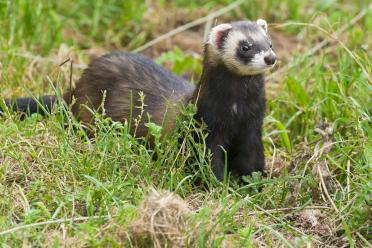
After graduating from my MSc, I was desperate to do something practical. I had pretty much been burned out from studying, exams, and essay writing for the last five years.
At this point in time, I could see myself doing a PhD as I really wanted to pursue a career in research. But I just didn’t think I was smart enough to do one - somewhat due to a lack of self-esteem. I’d also not found a project I was passionate enough about. I had a vision in my head of working in conservation and research but found the two fields hard to merge together.
Taking a break instead turned out to be beneficial, albeit a little disheartening as it was my first real look into the competitive job market!
From reading job adverts of positions I really wanted, I understood what skills I already had and which skills I lacked. One thing I really needed was experience in lab work. This led to me applying for lab positions, eventually landing a job as a research technician in the medical institute at my old university.
This seemed a different environment from where I thought my career would go, but I knew that building my skill set would help with future job applications. It was also a chance for me to work on my confidence.
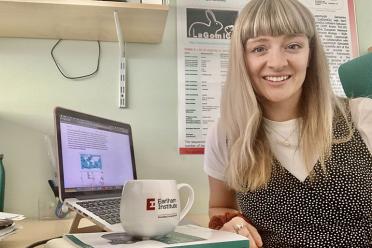
I was a total fish out of water when I started and suffered a lot from imposter syndrome. Whenever I was given a task or responsibility that I thought was out of my capability I would freak out, knowing that I would do it incorrectly and be found out as a fraud. It also didn’t help that experimental work came hand in hand with failure. I was often spending my days at work trying to figure out why experiments had failed, why some equipment would stop working, or why my reagents had been contaminated.
Over time, though, I proved to myself that I could do these things. I learned to see failure in a different way and talking to my colleagues really helped. I also started to mentor undergraduate and postgraduate students, plan experiments, and finally ended up helping to run a lab.
I found these duties really rewarding as they built a core of self-assurance in my capabilities. I also found my work interesting – no day was exactly the same and I was intrigued by the different research projects I was working on. From understanding salmonella pathogenesis to wildlife forensics, I was amazed by the research that was going on around me!
Working within the research environment reaffirmed the fact that I wanted to go on to do a PhD, but I still had doubts about whether I was capable. I wishfully started looking at project applications in October 2019 and, after having found projects that sounded exactly like the sort of research I wanted to do, I bit the bullet and applied.
When I finally told a lot of my friends and colleagues that I was going to start applying for PhD positions, I was overcome by their supportive and positive responses. I think their support really egged me on and I was so happy when I got accepted for interviews - even more so when I was accepted to do my PhD here at the Earlham Institute!


Truthfully, I don’t think anyone can ever be fully prepared for what a PhD entails, especially when starting it in a pandemic. I’ve been told not to compare my PhD journey to anyone else’s, but this is much easier said than done.

Coming back into full-time studying again after a long time felt exciting, but also nerve-wracking. I knew to expect obstacles and I felt better equipped now than after my MSc to deal with them. I could compartmentalise failure and rejection in a healthier way and understood that a PhD was a long process. I couldn’t expect results straight away.
I also knew there were so many more pros than cons of doing a PhD for what I wanted to get out of it. First of all, my project was in a field that I was so passionate about. I couldn’t wait to learn and dedicate my time to studying. I was equally excited at the possibilities of going to conferences, presenting my research, and doing outreach. A PhD is an opportunity to study a subject in such depth and detail that you’ll become an expert, and I couldn’t wait to get started.
It was only a matter of days after accepting my PhD that the whole country went into lockdown and I knew my PhD experience would be very different to what I’d imagined. The first few weeks passed by in an adrenaline-fueled daze with the constant overarching thought of: “I have no idea what is going on”. Moving to a new city during lockdown, without knowing many people, was difficult but meeting other PhD students virtually and knowing they were going through the same scenario really helped.
Luckily, I’ve still been able to make progress in my research and attend conferences and training workshops virtually that have been beneficial to my understanding of the current research and techniques being used in my field. When I was working I didn’t have the chance to participate in these types of events as often as I would’ve liked, so I find this such an amazing chance to indulge in these opportunities.
Truthfully, I don’t think anyone can ever be fully prepared for what a PhD entails, especially when starting it in a pandemic. I’ve been told not to compare my PhD journey to anyone else’s, but this is much easier said than done. My cohort of peers have had to deal with mostly doing their research from their bedrooms, not being able to meet with other students and potentially having to replan field work or lab experiments.
This can be a common theme with a lot of PhD projects even outside of a pandemic. After having worked with PhD students in my position as a research tech, I had seen this many times before. Experiments not working, having to rethink experimental design, and having to completely 360 your PhD project’s main objectives were all obstacles I’d seen others overcome.

I really believe that a supportive environment has been important during my time as a PhD student. I had experienced both a toxic working environment and an uplifting one before, and definitely noticed a change in my capabilities whilst working in a supportive lab group.

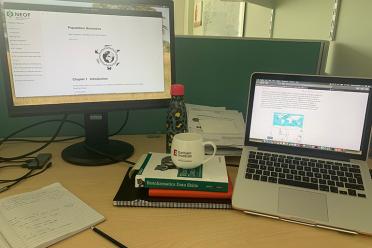
I really believe that a supportive environment has been important during my time as a PhD student. I had experienced both a toxic working environment and an uplifting one before, and definitely noticed a change in my capabilities whilst working in a supportive lab group. We meet virtually once a week, which gives us the opportunity to share our research and get feedback on it. I’ve undoubtedly benefited from this and it has helped me to communicate my science better.
I’ve also benefited a lot from getting to know the other students at the Institute. Being a part of the PhD student community has been such an important lifeline, especially during the pandemic. They’ve been there to offer advice and support in how to manage the beginnings of the PhD, which has been so helpful. We’ve also managed to fit in a few socials - from virtual takeaway evenings to a murder mystery night, it’s been a lot of fun! I didn’t feel like I was missing out too much from what I’d originally thought my new student life would’ve looked like.
I’ve also been appreciative of the in-depth discussions I’ve had with colleagues. I found it quite daunting at first to ask for these meetings, and my insecurities didn’t help with my confidence in writing those emails. However, I’ve been grateful that colleagues have offered their time to discuss their research and explain concepts that I couldn’t understand straight away. This has helped me to progress in my project and just demonstrates how supportive the community is here.
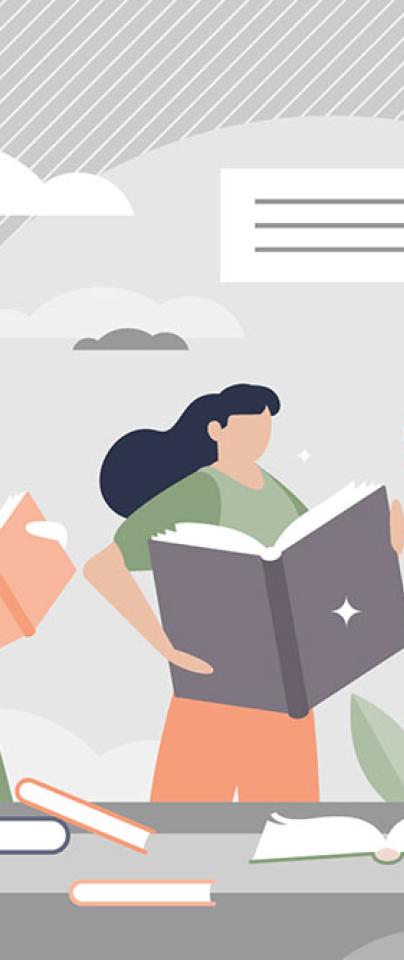

Being a part of the PhD student community has been such an important lifeline, especially during the pandemic. They’ve been there to offer advice and support in how to manage the beginnings of the PhD, which has been so helpful.

Despite my insecurities and the initial isolation at the beginning of my PhD, I’ve thoroughly enjoyed my first year. I’ve been exposed to so many incredible training workshops, attended several conferences and passed my first big hurdle of the PhD. I can’t stress enough how quickly this year has passed and I’m excited for what is to come!
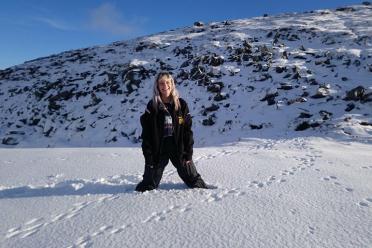
Don’t be afraid to ask questions. You aren’t expected to be an expert at this stage, but you are surrounded by people who are.
Try not to regularly work in the evenings or on weekends. A work-life balance is key.
Make sure you think about what you want to get out of your PhD. This may change over time, or not come to fruition, but it is good to have an idea of your goals.
Get a hobby! Taking time out to do something completely different to your PhD can be so helpful.
Engage with the academic community. I’ve found that the PhD community is so welcoming - at the Earlham institute, through my funding cohort, and on social media too. Connecting with others that are going through the same thing as you helps a lot.
Immerse yourself in student life. Join societies, go to pubs on a weekday, and attend student conferences.
Keep a journal to write down what you have achieved that day/week. This helps a lot when you feel like things are going slowly and you aren’t making any progress (when in reality you are).
Type up notes from meetings! Looking back at incoherent, half developed, scribbled ideas will only cause you immense frustration.
Practise your talks aloud before you give them. Talk to your mum/flat mate/cat/reflection in the mirror until you are comfortable with what you are saying.
Don’t compare your PhD journey to anyone else’s.
Becky is a first year PhD student on the NERC funded ARIES DTP training programme. If you're interested in undertaking a PhD, keep an eye out in the Autumn for the next round of PhD recruitment opportunities.